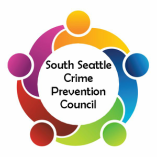Rape Prevention
Rape is sexualized violent assault and is, shamefully, not as uncommon a crime as one might think: One in three girls and one in five boys will have been sexually assaulted by age 16; and, for both kids and adults, 84% of sexual assaults are committed by someone known to the victim. To prevent the likelihood of such attacks on kids, it is imperative that parents/trusted adults give children accurate, honest information which will empower children to say no to and avoid inappropriate advances, attention, and touch; additionally, kids must be encouraged to report/tell parents, trusted adults, and authorities if and when they feel they've been violated:
- Let your child know that you care about her/him
- Develop open communication with your child and emphasize that he/she may share an her/his body anything with you
- Respectfully speak with and listen to your child daily; show you care about your child's feelings and opinions
- Tell your child not to keep secrets from you and not to be embarrassed about discussing uncomfortable topics
- Tell your child that is never okay for another to make/intimidate your child into keeping an uncomfortable secret
- Teach children about privacy: yours, theirs, and others
- Remind your child that her/his body is her/his own and that no one should touch their private parts
- Provide accurate information about appropriate touching and behavior
- Empower your child to say/scream/yell "No!" to unwelcome behavior/touching
- Talk to your child personal safety skills
- Encourage good decision-making habits/skills
- Pay attention to your child's behavior: Is he/she acting strangely or scared/nervous?
- Who spends time with your child? Know your child's friends--where they live, their contact information, etc.
- Identify trusted adults for your child to confide in should you be unable to immediately speak with or aid your child
Almost one-third of all rape survivors develop post-traumatic stress disorder (PTSD) sometime in their lives. Male victims of rape/sexual assault experience the same reactions as female victims as well as increased feelings of physical vulnerability and, often, a damaged sense of masculinity. These effects often occur because of the fraught cultural belief that a boy or man should always be able to protect himself from anyone, especially another male, and if he cannot, then somehow the victimized male must be responsible for his own assault. Adults also need to feel empowered about what they may do to to prevent sexual violence and what should be done if they themselves are sexually assaulted. We must educate girls and boys, women and men, that no one is responsible for the violently sexualized assault another commits upon her or him. Further, we must encourage those who have been sexually assaulted to seek immediate help--both physical, psychological, and legal.
Parents and trusted adults must develop and trust their instincts about who spends time with the children in their lives. A few questions to bear in mind:
- How long have you known this person?
- What do you know about how this person treats children? What do other parents/adults say about this person?
- How comfortable is your child with this person? How comfortable are you with this person?
- With respect to daycare centers and schools: Are you welcome to come at anytime to check up on your child?
- Does this person behave defensively when you raise questions about your child's care or instruction?
- Does this person ignore boundaries set by you or your child? Does this person appear over-involved with your child?
- Does this person appear to identify with/play with children as a peer? If so, this is troubling.
- Is this person constantly touching children, engaging in touching games, massages, tickling? If so, this is troubling.
- Is this person quick to assume a parenting role/trusting role with your child?
Be aware of changes in your child's behavior -- these can be changes in your child's mood, appetite, appearance, performance in school, interest in socializing, etc. -- as such changes may indicate that he/she has been sexually victimized. Seek help for your child should you notice the following:
- Your child becomes self-isolating/withdrawn or engages in self-destructive behavior
- Your child becomes defensive/moody/nervous around a certain person
- Your child exhibits extreme anxiety/stress/tension when faced with going to a certain place or with a certain person
- Your child begins to show or speak about inappropriate or strange sexual behaviors
Although the information presented on this page focuses upon children, rape/sexual assault affects people of all ages. The King County Sexual Assault Resource Center (KSARC) maintains a very informative website which directs one to the sexual assault resources their office provides--http://www.kcsarc.org/about-us or telephone 888.99.VOICE (888.998.6423), their 24-hour resource line.
